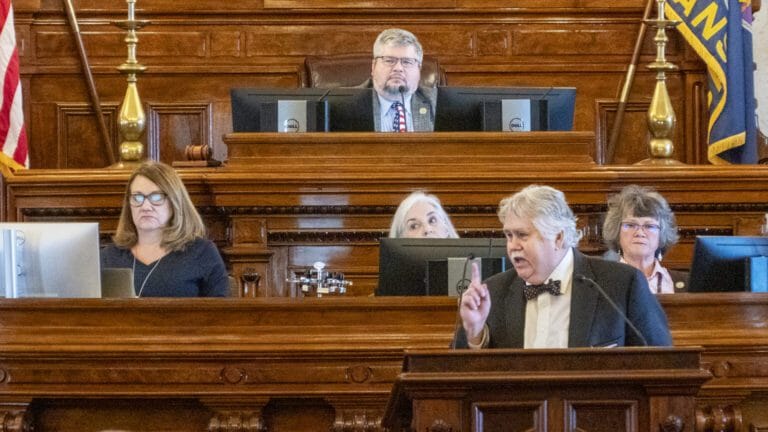🎧 Listen to This Article
The Kansas Legislature has passed two significant tax bills set to reach the governor’s desk, marking the final steps of the 2025 regular session. However, lawmakers remain divided on whether these measures live up to their campaign promises to Kansans.
Senate Bill 35, which targets property tax relief, has faced significant pushback from Senate Democrats, who argue the tax cuts are insufficient. The bill eliminates the statewide levies for state education and institution building funds, amounting to a combined 1.5 mill reduction. Despite this, critics, like Topeka Democrat Sen. Patrick Schmidt, have denounced the measure, labeling it a “measly” effort that fails to meet the significant needs of Kansas residents.
Meanwhile, Senate Bill 269, which aims to reduce individual and corporate income tax rates, has also sparked heated debates. The bill proposes lowering income taxes to 4%, with potential reductions for corporate and financial institutions, but these cuts are contingent on maintaining the state’s budget stabilization fund. While Republican proponents, including Sen. Caryn Tyson, have touted these tax reductions as a necessary response to out-of-control government spending, Democrats have questioned the timing and effectiveness of these measures.
The reductions, which are set to take effect in 2025, will depend on whether the state’s General Fund revenue exceeds the previous fiscal year’s revenue adjusted for inflation. Critics like Sen. Ethan Corson argue that taxpayers won’t see immediate relief, noting that while income tax reductions might materialize eventually, property tax relief will have a minimal impact, with savings for typical homeowners amounting to less than $40 annually.
As the session wraps up, Republicans defend the bills as a step toward fiscal responsibility and reducing government growth, while Democrats continue to voice concerns about the adequacy of these measures for struggling Kansans. The legislature is set to reconvene for the veto session on April 10, where further debates are expected.
For further details, clarification, contributions, or any concerns regarding this article, please contact us at editorial@tax.news. We value your feedback and are committed to providing accurate and timely information. Please note that our privacy policy will handle all inquiries



